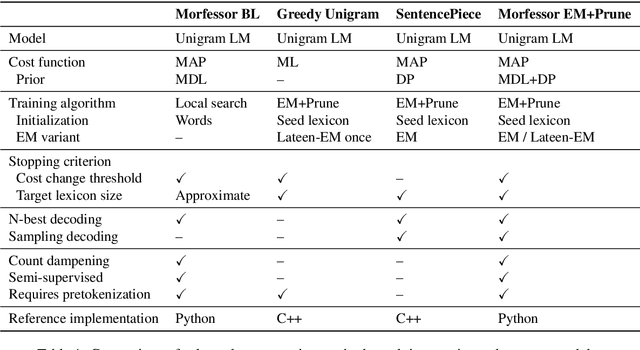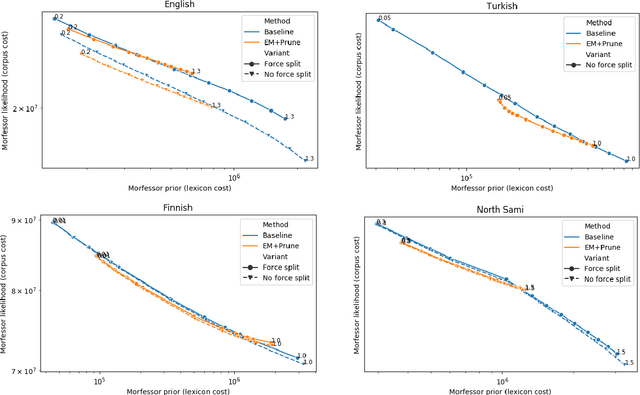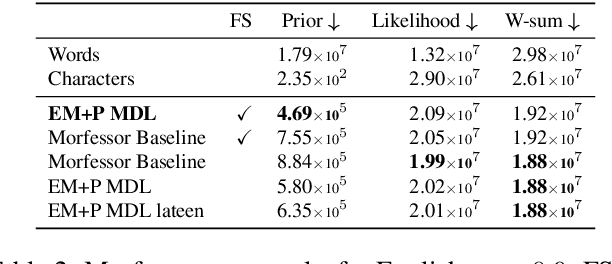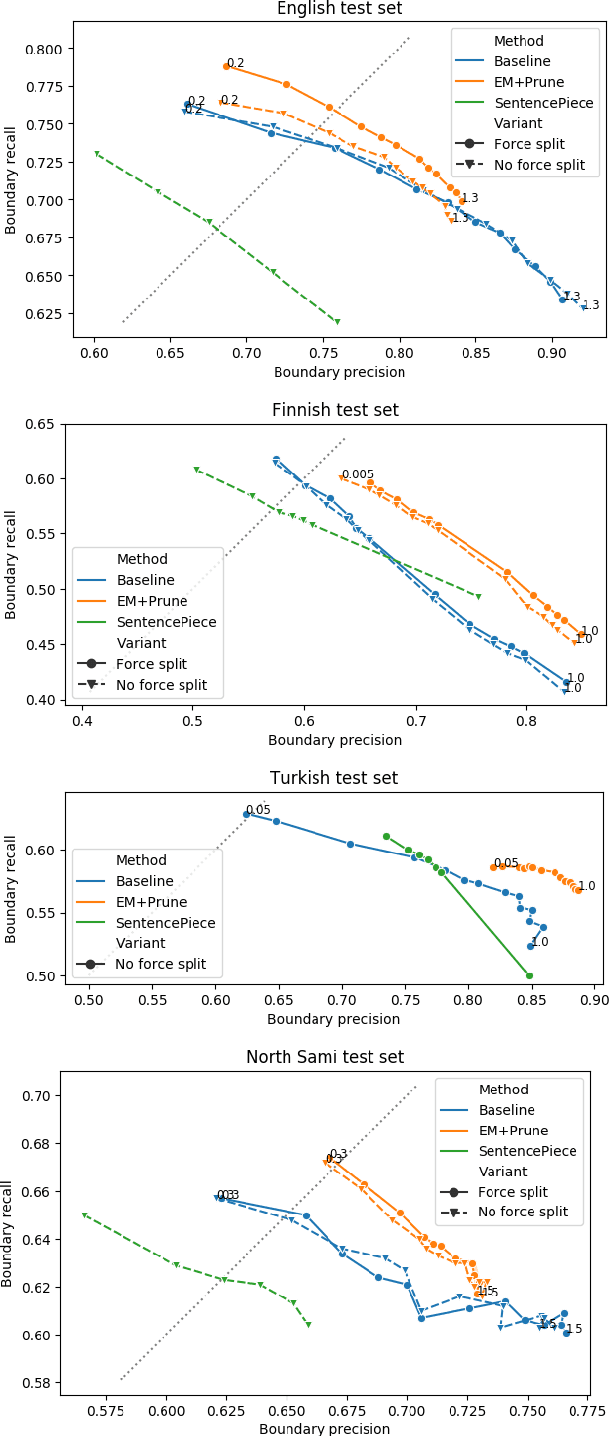Morfessor EM+Prune: Improved Subword Segmentation with Expectation Maximization and Pruning
Paper and Code
Mar 06, 2020



Data-driven segmentation of words into subword units has been used in various natural language processing applications such as automatic speech recognition and statistical machine translation for almost 20 years. Recently it has became more widely adopted, as models based on deep neural networks often benefit from subword units even for morphologically simpler languages. In this paper, we discuss and compare training algorithms for a unigram subword model, based on the Expectation Maximization algorithm and lexicon pruning. Using English, Finnish, North Sami, and Turkish data sets, we show that this approach is able to find better solutions to the optimization problem defined by the Morfessor Baseline model than its original recursive training algorithm. The improved optimization also leads to higher morphological segmentation accuracy when compared to a linguistic gold standard. We publish implementations of the new algorithms in the widely-used Morfessor software package.
 Add to Chrome
Add to Chrome Add to Firefox
Add to Firefox Add to Edge
Add to Edge